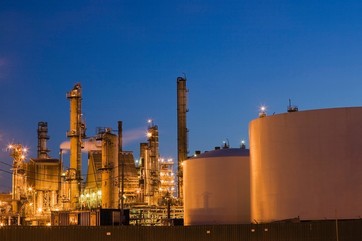 The distribution of dividends in a Limited Liability Company (“Company“) is regulated under Law Number 40 Year 2007 Concerning Limited Liability Company (“Company Law“). According to Company Law, all net profits after the deduction to be set aside as reserves shall be allocated to the shareholders as dividends unless determined otherwise in the General Meeting of Shareholders (“GMS“). The reserve is a certain amount from profits used for the reserve, as determined by GMS.
The distribution of dividends in a Limited Liability Company (“Company“) is regulated under Law Number 40 Year 2007 Concerning Limited Liability Company (“Company Law“). According to Company Law, all net profits after the deduction to be set aside as reserves shall be allocated to the shareholders as dividends unless determined otherwise in the General Meeting of Shareholders (“GMS“). The reserve is a certain amount from profits used for the reserve, as determined by GMS.
Dividends may only be allocated if the Company has a positive balance of profits. Positive balance of profits means the Company’s net profits in the current financial year have covered the Company’s accumulated losses from previous financial years.
Company shall set aside net profit each financial year as a reserve until the reserve reaches at least 20% (twenty percent) of the total subscribed and paid up capital.
The dividends which are not distributed after 5 (five) years have passed from the date determined for the payment of former dividends, shall be placed in a special reserve. The procedure for the collection of dividends which have been placed in the special reserve will be provided under GMS. If the dividends which have been placed in the special reserve are not distributed within 10 (ten) years, the total of the dividends shall become the right of the company as has been recorded in the books as other incomes i of the Company.
For the allocation of interim dividends or as known as temporary dividends which are paid before the Company’s annual earnings are determined by GMS, may be performed before the Company’s ongoing financial year ends to the extent that it is provided in the Company’s articles of association.
The distribution of interim dividends may be performed provided that:
- the Company’s total net assets will not become less than the total subscribed and paid up capital plus the mandatory reserve, and
- it cannot disrupt or cause the Company to be unable to fulfill its obligations to creditors or disrupt the Company’s activities.
The distribution of interim dividends shall be determined by a resolution of the Board of Directors after obtaining the consent of the Board of Commissioners. On the other hand, if after the financial year ends it transpires that the Company has suffered losses, then the interim dividends which are already allocated must be returned to the Company by the shareholders.
Company Law explains the example of interim dividends which must be returned would be as follows:
An interim dividend of Rp 1.000,00 (one thousand rupiah) per share is distributed. The Company suffers losses and does not have a positive balance of profits so there is no dividend to be allocated. Therefore, the Rp 1.000,00 (one thousand rupiah) per share must be returned. If the Company suffers losses but the Company has retained earnings and a positive balance of profits, the GMS, for example, may determine a dividend of Rp 200,00 (two hundred rupiah) per share. Therefore, each share which must be returned to the Company is Rp 1.000,00 minus Rp 200,00, which would be Rp 800,00 (eight hundred rupiah).
If the shareholders are unable to return the interim dividends, the Board of Directors and Board of Commissioners shall be jointly and severally responsible for the Company’s losses.
Bintang Aprilio Putra





